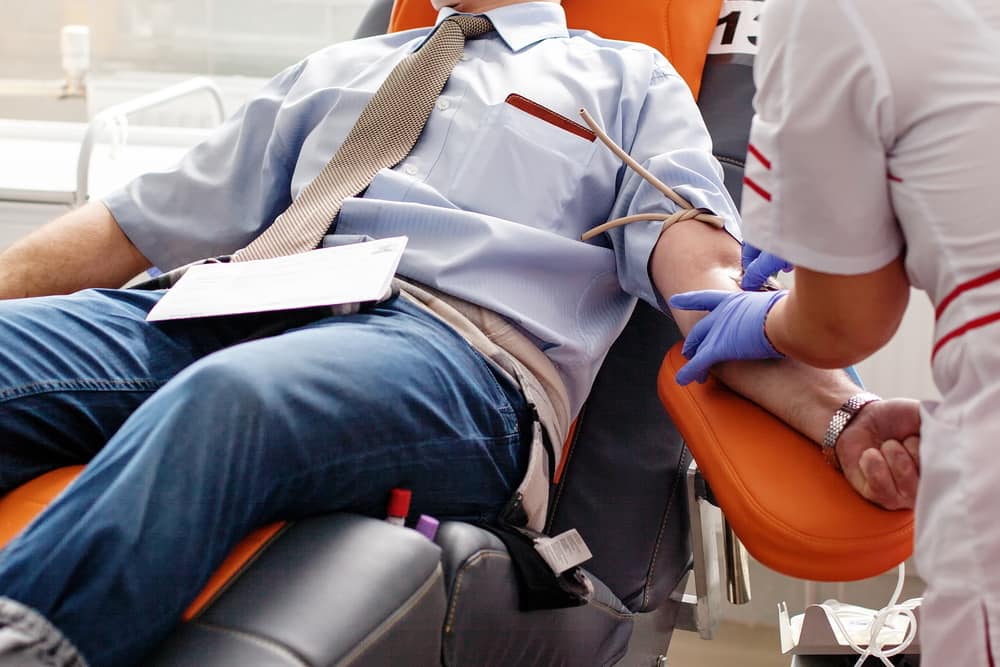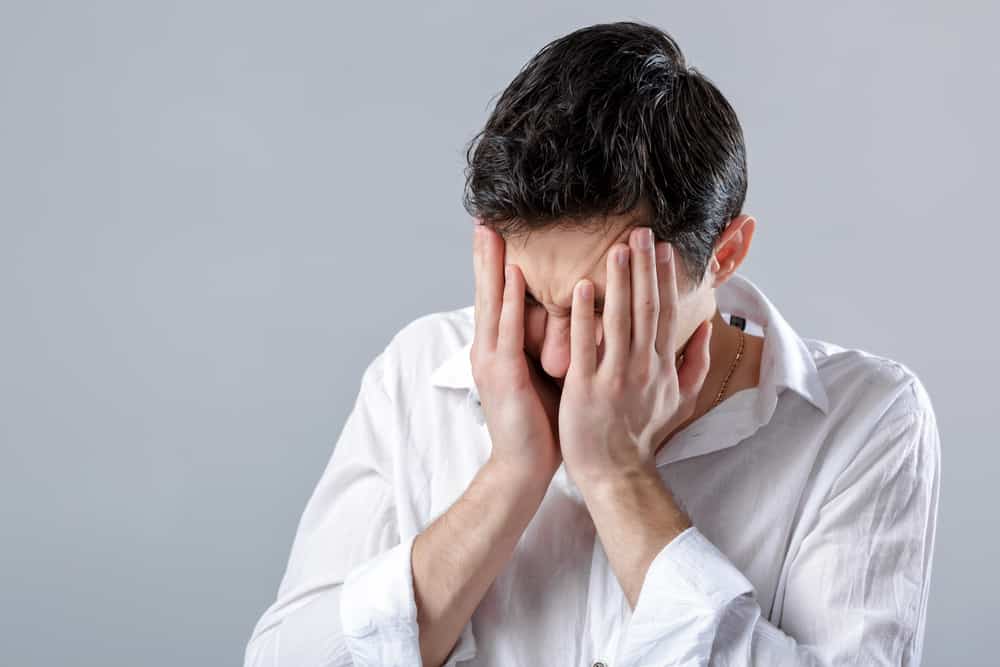Contents:
- Medical Video: My Eating Disorder.
- Characteristics of anorexia nervosa
- 1. Weight is always lacking
- 2. Have a negative body image
- 3. Reproductive system disorders
- Get to know the factors that cause anorexia
- 1. Biological factors
- 2. Social factors
- 3. Psychological factors
- Is it true that anxiety (anxiety) can be the cause of anorexia?
- 1. Fear of being judged negatively by others
- 2. Obsession
- What type of anxiety is the most common cause of anorexia nervosa?
- Overcoming anxiety that might be the cause of anorexia
Medical Video: My Eating Disorder.
Anorexia comes from Greek which means loss of appetite and nervosa comes from the Latin word which means there is interference from the nervous system. So, simply anorexia nervosa is a nervous disorder that makes a person not appetite. The cause of anorexia nervosa in a patient is quite difficult to determine because there are many factors. However, many believe that excessive anxiety can be one of the causes of anorexia nervosa. More complete, see the explanation below.
Characteristics of anorexia nervosa
Based on the book Diagnostic Classification of Mental Disorders (PPDGJ), there are several criteria for a person to be said to be anorexic. His own characteristic is to reduce weight intentionally, continuously, and quite extreme. However, to get a definite diagnosis, patients must meet the following criteria.
1. Weight is always lacking
A body weight that is always 15 percent below normal can be a symptom of anorexia. Pre-teens may fail to achieve the expected weight during the growth period.
Reduced weight is done intentionally by avoiding foods that contain fat. Patients may also vomit food, use laxatives, exercise excessively, use appetite suppressant drugs and / or diuretic drugs.
2. Have a negative body image
Anorexia nervosa patients may have a very negative view of their own body, feeling fat despite being thin. This is called body image orbody image that is not healthy.
The patient may also be haunted by the thought that his weight will increase or his body become fat.
3. Reproductive system disorders
In women, anorexia nervosa can cause amenorrhea (menstruation to stop) because hormone levels in the body are not balanced. In addition, men and women with anorexia nervosa may lose sexual desire.
In children or adolescents, anorexia nervosa can cause puberty to be delayed or stop. As a result, young women may not grow their breasts and do not go through their first menstruation. Teenage boys may also experience a disorder, namely the penis remains small, does not develop as it should.
Get to know the factors that cause anorexia
The cause of anorexia nervosa is quite complicated and there are many factors. You can even experience anorexia nervosa because you have several factors at once.
1. Biological factors
In patients who experience anorexia nervosa, there are disorders of the hormones norepinephrine and MPHG, namely the end product of norepinephrine in the urine and cerebrospinal fluid. Disorders of serotonin, dopamine, and norepinephrine also cause dietary problems.
All these hormonal abnormalities and chemicals that cause anorexia are regulated in the brain. Therefore, anorexia patients do have serious problems in the biochemical structure of the brain.
2. Social factors
Generally patients who experience anorexia nervosa have problems in relationships with parents, the closest people, and can be increasingly triggered by a lack of empathy in the family.
Another social factor is the obsession of modern society with a slender female body shape. This obsession continues to be instilled especially in young women, for example through the mass media.
3. Psychological factors
Anorexia nervosa can also be triggered by psychological factors, such as trauma. For example, young women who have been ridiculed orbully because having a body that contains can develop eating problems to end anorexia. Likewise, if in his family, children are required to appear perfect with a slender body.
Is it true that anxiety (anxiety) can be the cause of anorexia?
Based on research, anorexia turned out to be related to several types of anxiety or anxiety. For example panic attacks, social phobia, obsessive compulsive disorder (OCD), anxiety disorders, and so on. The higher the level of anxiety, the more severe anorexia will be. There are several types of anxiety that trigger anorexia.
1. Fear of being judged negatively by others
People who experience anorexia are afraid of increasing body weight and criticism from others. The term to describe excessive fear and anxiety is "weight phobia", Which means there is a phobia of foods with high calories and increased body weight.
2. Obsession
Anorexia nervosa is characterized by a blind obsession with food and weight, certain eating habits, hard exercise, and other habits that often arise and are associated with OCD.
This action of obsession will increase especially when in the acute anorexia phase. Obsession will subside when the patient has improved and has gained weight.
What type of anxiety is the most common cause of anorexia nervosa?
Based on research conducted by Rotheran, anorexia is said to be one of the "branches" of OCD. Obsessive compulsiveness is a condition characterized by commanding thoughts, repetitive behaviors, and compulsive actions.
Generally, patients will be diagnosed with OCD first. Then about five years later, the patient is exposed to anorexia. This is due to the compulsive drive and anxiety in the patient. Whereas one of the factors causing anorexia is excessive anxiety and fear of being fat.
Anorexia patients are also more at risk for excessive compulsive action. For example exercise is too hard and has an unnatural obsession when choosing food, presenting food, cooking food, and serving food.
Overcoming anxiety that might be the cause of anorexia
Therapy given to patients who experience anxiety and anorexia can be psychological therapy that is intended for anxiety disorders. Usually patients are recommended to undergo CBT therapy (cognitive behavioral therapyor behavioral and cognitive therapy) with a psychologist.
Some steps to reduce anxiety include:
- Exercise and do physical activities to divert anxiety. However, consult a doctor or sports coach (personal trainer) to determine how long and the type of exercise that is right and safe for you.
- Talk to your doctor, friends, family.
- Be careful of things that can trigger anxiety. For example reading magazines, viewing internet content, watching movies, television shows, andfashion showwho adore slender women and men.
- Have a healthy diet. Don't forget, avoid caffeine because it can trigger anxiety.
For the treatment of anorexia, it can be done with a psychotherapy approach. Psychotherapy consists of individual therapy, family therapy, nutritional counseling, and therapy in groups.
In patients who are still in the acute phase, the goal of individual psychotherapy is to increase the patient's weight. Family psychotherapy, used to increase support in the family for patients. Psychotherapy done in groups can also be done. In group psychotherapy, patients will get support, advice, and education about their eating disorders.













